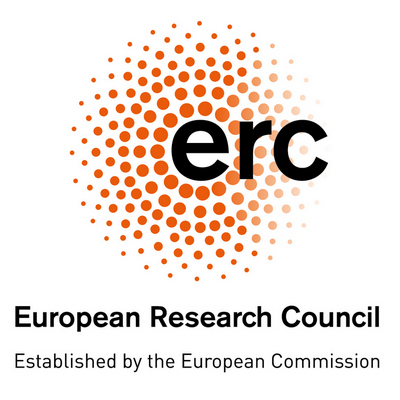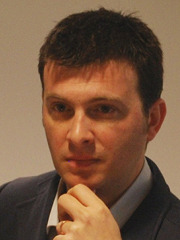HEPMASITE: Hebrew Philosophical Manuscripts as Sites of Engagement
ERC Starting Grant
2022–2027
‘Hebrew Philosophical Manuscripts as Sites of Engagement’ (HEPMASITE) is a five-year research project headed by Dr Yoav Meyrav of the Institute of Jewish Philosophy and Religion at Universität Hamburg.
HEPMASITE tackles the corpus of medieval Hebrew philosophical manuscripts in order to unravel the hidden history of Jewish philosophy enveloped within them. It aims to reconceptualise the understanding of Jewish philosophy as it took place in the real world and as it was studied by actual people.
HEPMASITE intends to fill the gap between two extremes: on the one hand, Hebrew manuscripts are incredibly well-documented, and in recent years, thanks to massive digitisation projects, are accessible as never before. This opens opportunities for research that were until now nearly impossible. On the other hand, Hebrew manuscripts are largely private (rather than institutionalised) endeavours that display considerable individuality, idiosyncrasy, and facing the unknown. They exhibit exceptionally high levels of anonymity, they are extremely diverse, and they contain several annotations, comments, glosses, and so forth.
This complex and uncertain state of events doubtless causes many problems, but it also offers a huge opportunity for studying philosophy as it was practiced in the real world. Retaining the particularity of Hebrew manuscripts also retains an essential component of the Hebrew philosophical narrative. With so many players unknown, the individual copy becomes our main point of entry to its history. Hence, rather than treating manuscripts as containers of text to be used to produce critical editions, research conducted within the context of HEMPASITE always stays on the manuscript level.
HEPMASITE operates according to three theoretical premises, each with its own method.
- Hebrew philosophical manuscripts are philosophical things and should therefore be studied as individuals by producing case studies.
- In the Hebrew tradition, copying a work is not distinct from the act of philosophising. If we study all the manuscripts of a certain work together, we can come up with its story. This is what the project refers to as ‘narrative philology’.
- An entire hidden history can be unearthed by analysing what happens between the lines and in the margins. To this end, the project is working on a repository of marginalia that will map the ways in which scholars engaged with the ideas they encountered.
This project is funded by the European Research Council (ERC) under the European Union’s Horizon 2020 research and innovation programme (grant agreement No 101041376). The project started in October 2022.

Contact at CSMC

University of Hamburg
Institut für Jüdische Philosophie und Religion
Jungiusstraße 11
20355 Hamburg
Office
Room: 5032
Contact
Tel: +49 40 2395-29835
Email: yoav.meyrav"AT"uni-hamburg.de
